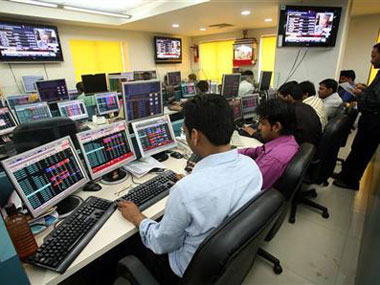As retail investors are predominantly online and on the mobile, Indian brokerage houses are now turning to social media forums like Facebook, Twitter and LinkedIn to lure Generation Next into trading and to acquire new clients.
Yesterday, brokerageGeojit BNP Paribas announced that it will launch its ‘infotainment’ application for Facebook later this week to attract young investors and educate them on stock markets. Brokerages like India Infoline and Nirmal Bang are already active on Twitter, offering real-time stock quotes, charts, news, discussions etc.
As the trade-where-you-want, when-you-want fad catches up, at least a dozen more brokers are gearing up to launch Facebook apps this year, a n Economic Times report pointed out today.
However, while social media websites are great for client insight modelling, many a times market manipulators use these very forums to spread a word for influencing some stocks. Their Facebook/Twitter accounts are often designed to look like they belong to top industry players.
[caption id=“attachment_758091” align=“alignleft” width=“380”] In social media hoaxes, anonymous users set up accounts with names that sound like prominent market players, issue negative commentary, and spark massive declines. Reuters[/caption]
In social media hoaxes, anonymous users set up accounts with names that sound like prominent market players, issue negative commentary, and spark massive declines. The selling that follows shows how the rapid spread of information on social media can make for volatile trading, and is a warning to investors who trade on news before fully verifying the source.
For example, in the US, Netflix CEO Reed Hastings in July 2012 announced through a Facebook post that his company had for the first time streamed 1 billion hours of content in a month. This statement got him into deep trouble with the SEC as the announcement drove its stock price up from $70.45 per share to $81.72 that particular day. Morever, the data on streaming was not public information and the company had not indicated that it would be communicated through Hastings’ Facebook page. Hence, disclosing information to 200,000-plus Facebook users is akin to issuing a press release.
Similarly, on Twitter, “The pump and dump trick is popular with unscrupulous short sellers. They start a Twitter account that appears to come from a well-known pro. They then make statements that are intended to move the market in their favor. And because Twitter has become a popular tool among short sellers and other traders who are hungry for breaking industry info, the scam sometimes works,” says columnist Joshua Gulick.
On April 2, the Securities Exchange Commission issued rules on the use of social media by companies for disseminating non-public material information in the US. On 24 April, a fake AP tweet that two explosions in the White House have injured President Barack Obama caused the US market to temporarily drop 150 points, erasing $136 billion in equity market value, following which several hedge funds, investors and Wall Street banks started hiring companies to sift through the hoards of social media messages.
And in order to prevent such mischief, Indian market regulator Sebi too is planning on issuing guidelines for the use of social networking sites.
But it remains doubtful whether these regulations will prevent the unofficial disclosures of market-sensitive information since many brokers are now turning to new-age mobile applications such as BlackBerry Messenger and WhatsApp to spread sensitive information about their target stocks.
While Sebi can easily track information shared on blogs and social media platforms, applications like WhatsApp and BBM are far more difficult since the transmission of messages through these platforms happen in a highly encoded manner and it is very difficult for a third party to decode them.
And after finding out that the source and spread of any sensitive information through social media platforms could be apprehended easily by the regulators, the manipulators are nowadays mostly using BBM and WhatsApp.
Hence, while false information is a danger of social media, the internet surely needs a much better method for fact-checking and authentication. And Sebi alone cannot achieve this tall task.


)
)
)
)
)
)
)
)
)



